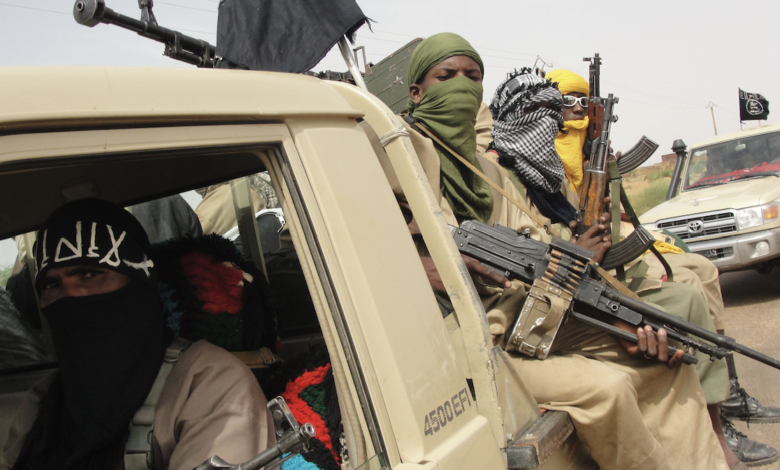JNIM Calls for More Offensive Against ISGS As Battle For Supremacy Continues In The Sahel
Previously regarded as the "Sahelian Exception" in the global jihadi rivalry, after cooperating to support each other, the two Al-Qaeda and Islamic State affiliates split and have been at odds since 2019.

Jama’at Nusratul Islam Wal Muslimin (JNIM), an Al-Qaeda affiliate in the Sahel, has called for an increase in offensives against its rival Islamic State affiliate, Islamic State in Greater Sahara (ISGS), following an ISGS attack that killed approximately 40 JNIM members and injured many more.
On Thursday, November 3, 2022, the Islamic State’s official weekly Al-Naba claimed the killing of about 40 Al-Qaeda fighters in the Menaka region of northeast Mali, an attack that provoked JNIM into issuing two different statements calling for more attacks against the ISGS.
Previously working together, the two jihadi groups have since 2019 followed the trend of internal struggle for dominance among Jihadists in the Middle East and West Africa, fighting each other, escalating their tensions about three years after their relationship deteriorated.
The two groups’ increasing struggle for supremacy has disrupted what experts previously referred to as the “Sahelian Exception,” which saw Al-Qaeda and Islamic State affiliates work together to maintain relationships and backgrounds in which jihadi activities thrived.
The two groups fell out after accusations of treachery and a lack of coordinated support in the war against their common enemy, which included the forces of Niger Republic, Burkina Faso, and Mali.
JNIM has also accused ISGS of indiscriminately killing civilians, while ISGS has accused JNIM of being too lenient toward their enemies.
ISGS began as a splinter group from Al-Qaeda affiliate Almourabitun in 2015, but later joined the JNIM, a coalition of various Jihadi groups across the Sahel. ISGS left the JNIM in 2017 after its relationship with the JNIM deteriorated, culminating in a full-fledged war in 2019.
In 2020, JNIM and ISGS clashed, with the JNIM emerging victorious and becoming the primary armed group, taking control of some villages near the Burkina-Niger border and using propaganda to influence and recruit people.
ISGS has recently made a turn and won over places previously under the JNIM control. This is partly attributed to the official merger between Islamic State West Africa and the ISGS.
The JNIM and ISGS have used inter-communal tensions in the Niger Republic to recruit new members and advance their agenda. They also promise to implement a justice system through Sharia and to cleanse their territories of external influence.
Among the major reasons for the split were the JNIM’s unwillingness to share some of its territories with the ISGS, the ISGS’s hunting of JNIM members, and the Islamic State Central’s amalgamation of the ISGS into the ISWAP.
The infighting between the ISGS and the JNIM has weakened the Sahel insurgency, allowing Mali, Niger Republic, and Burkina Faso forces to take advantage of the situation.
Support Our Journalism
There are millions of ordinary people affected by conflict in Africa whose stories are missing in the mainstream media. HumAngle is determined to tell those challenging and under-reported stories, hoping that the people impacted by these conflicts will find the safety and security they deserve.
To ensure that we continue to provide public service coverage, we have a small favour to ask you. We want you to be part of our journalistic endeavour by contributing a token to us.
Your donation will further promote a robust, free, and independent media.
Donate HereStay Closer To The Stories That Matter




